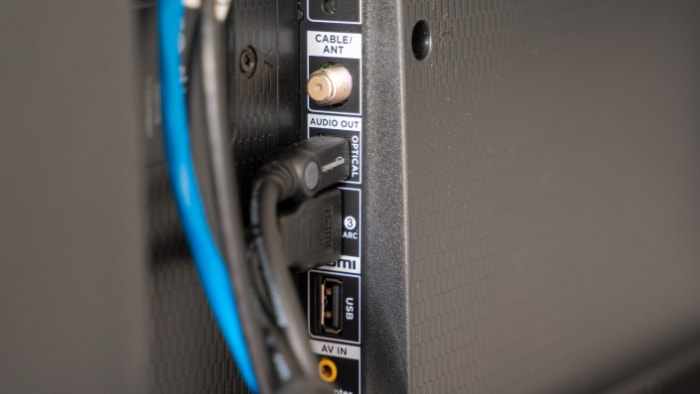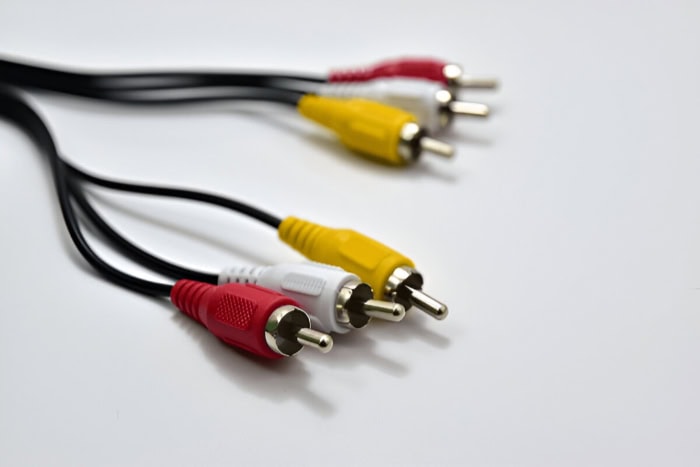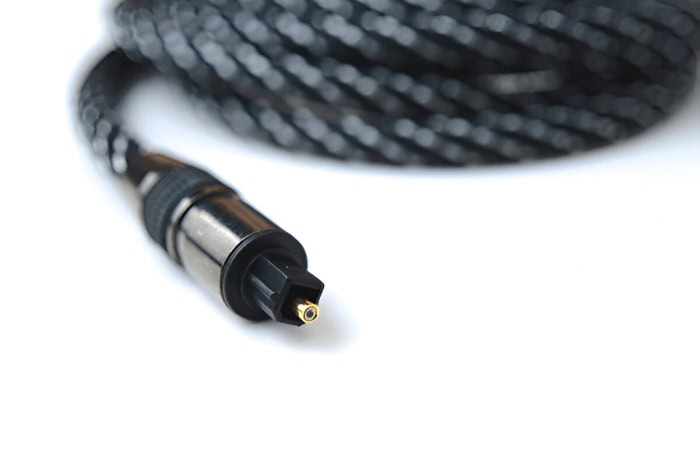Optical vs. RCA: Which Is the Right Connection for You?

The way audio signals are transmitted can have a significant impact on sound quality, device compatibility, and overall listening experience. Among the many connection types available, optical and RCA cables stand out as two popular choices, representing digital and analog technologies, respectively.
Optical cables use light to deliver crisp, interference-free audio, while RCA cables have been a trusted option for decades, favored for their simplicity and compatibility with older equipment.
Both connection types serve important roles in modern and legacy audio systems, but their differences can make one a better choice depending on your needs.
Understanding Optical and RCA Connections
Audio cables are the backbone of any sound system, serving as the bridge between devices to deliver the audio signals that bring music, movies, and games to life. Two popular options for transmitting these signals are optical and RCA cables.
Each type serves a unique purpose, relying on different technologies to transfer sound from one device to another.
What Is an Optical Connection?
Optical cables, also known as Toslink cables, use light to transmit audio signals digitally. Unlike traditional copper wires, optical cables rely on fiber-optic technology, where pulses of light represent the digital audio data.
This light-based transmission eliminates the risk of electrical interference, which is a common issue with other cable types. As a result, optical connections are well-suited for delivering clean, high-quality sound, especially in environments with multiple electronic devices.
One of the main applications of optical cables is in modern home entertainment systems. They are often used to connect TVs, soundbars, and gaming consoles, as they support multichannel audio formats like Dolby Digital and DTS.
This makes them an excellent choice for immersive surround sound setups. Additionally, optical cables are popular for connecting modern receivers and audio processors in setups that prioritize audio clarity and precision.
While optical cables excel in transmitting digital signals, they are limited by their compatibility. Only devices equipped with Toslink ports can use them, which generally includes newer electronics.
This makes them less suitable for older equipment, but for users focused on modern audio systems, optical connections are a reliable and high-performing option.
What Is an RCA Connection?
RCA cables, named after the Radio Corporation of America that introduced them in the 1940s, operate on analog signal transmission. These cables are widely recognized by their distinctive red, white, and yellow plugs, though only the red and white connectors are used for audio.
Unlike optical cables, which transmit digital signals, RCA cables carry audio as continuous electrical signals, creating a direct analog pathway between devices.
RCA connections are most commonly associated with older stereo systems, budget-friendly setups, and legacy devices such as CD players, DVD players, or turntables.
Many amplifiers and receivers, especially those designed before the advent of digital audio, rely on RCA inputs for sound transmission.
Their simplicity and broad compatibility make them an enduring choice for those who prefer traditional analog audio systems or own older equipment.
Digital vs. Analog Signals: How They Compare
The fundamental distinction between optical and RCA connections lies in the type of signals they transmit.
Optical cables carry digital signals, which consist of binary data (1s and 0s) that must be converted into analog sound waves by a device’s Digital-to-Analog Converter (DAC) before reaching your speakers or headphones.
This digital transmission ensures minimal distortion, as the signal does not degrade during transmission. It also makes optical cables ideal for supporting advanced audio formats like Dolby Digital and DTS, which require high bandwidth for multichannel audio.
On the other hand, RCA cables transmit analog signals, which are continuous waveforms representing the original audio. Because analog signals are transmitted directly, they don’t rely on DACs in the same way digital signals do.
However, this directness also makes analog signals more susceptible to noise and interference. Any external electrical signals or imperfections in the cable can introduce distortion, potentially impacting overall sound fidelity.
Audio Quality Comparison

The quality of sound produced by an audio connection is one of the most important factors to consider when selecting between optical and RCA cables. Each type offers distinct strengths and challenges when it comes to clarity, fidelity, and support for various audio formats.
Sound Clarity and Fidelity
Optical cables are designed to transmit digital signals, which inherently reduce the risk of interference and distortion. This is because the signal travels as pulses of light rather than electrical currents, making it immune to electromagnetic interference from nearby devices or cables.
As a result, audio transmitted via optical cables tends to be exceptionally clear and free of unwanted noise. This makes them an excellent choice for environments with multiple electronic devices, where interference might otherwise degrade sound quality.
RCA cables, on the other hand, transmit analog signals, which are more vulnerable to signal degradation and external interference.
For example, longer RCA cables or those used in electrically noisy environments may experience some loss of fidelity, resulting in a slight hum or static in the output.
However, many audiophiles appreciate the “warmth” associated with analog sound. This warmth refers to a perceived richness or depth in the audio, which some listeners feel is missing from the precision of digital signals.
While this is subjective, it highlights the unique appeal of analog connections for certain users.
Channel Support
Another significant distinction between optical and RCA cables lies in their support for audio channels. Optical cables are built to handle multichannel audio formats, including Dolby Digital and DTS.
These formats are commonly used in modern home theater systems to deliver immersive surround sound, making optical connections ideal for watching movies, playing video games, or streaming high-definition content.
With the ability to transmit multiple audio channels simultaneously, optical cables provide a richer and more engaging audio experience in setups that demand multichannel sound.
RCA cables, in contrast, are limited to transmitting stereo or mono signals. This means they can only carry two audio channels—left and right—which is sufficient for traditional stereo systems but falls short for multichannel applications.
RCA is therefore best suited for simpler setups, such as two-speaker arrangements or older devices that do not support surround sound.
While stereo sound remains a popular choice for many music enthusiasts, it lacks the depth and spatial dimension of multichannel formats.
The capability of optical cables to handle advanced audio formats gives them a distinct advantage for users looking to create cinematic audio experiences at home.
However, for music-focused setups or devices designed with stereo sound in mind, RCA can still provide excellent performance.
Impact of Equipment on Sound Quality
The equipment you pair with your audio cables plays a crucial role in determining the overall quality of the sound. For optical connections, the responsibility of converting the digital signal into analog sound falls on a device’s Digital-to-Analog Converter (DAC).
High-quality DACs can produce incredibly detailed and accurate sound, while lower-quality ones may result in audio that feels flat or lacks depth.
This means that even if you use an optical cable, the final sound quality will depend heavily on the DAC built into your receiver, soundbar, or other audio equipment.
RCA cables, by transmitting analog signals directly, bypass the need for a DAC in the same way. However, this direct transmission makes them more reliant on the quality of the source device and the cable itself.
Poorly shielded RCA cables or devices with subpar audio components can introduce noticeable noise or distortion into the signal.
Conversely, high-quality RCA cables and well-designed audio equipment can preserve the integrity of the analog signal, delivering smooth and detailed sound.
Compatibility and Use Cases

The choice between optical and RCA cables often depends on the devices you’re connecting and the type of audio setup you want to achieve.
These cables cater to different generations of technology, with optical being a modern solution for digital audio and RCA remaining a trusted option for analog systems.
Device Compatibility
Optical cables are designed for use with modern devices that feature Toslink ports. These ports are commonly found on TVs, soundbars, gaming consoles, audio receivers, and some computers.
They are especially prevalent in home theater systems, where digital audio is required to support surround sound formats.
If your setup includes newer devices, optical connections are likely to be an option, offering a straightforward way to transfer high-quality audio between components.
RCA cables, by contrast, are more commonly associated with legacy devices. Older CD players, turntables, and amplifiers often rely on RCA connections as their primary means of audio transmission.
Many traditional stereo systems, particularly those produced before the widespread adoption of digital audio, are equipped with RCA inputs. This makes RCA cables an invaluable choice for users with vintage audio equipment or those looking to integrate older devices into their setups.
While newer devices have largely shifted to digital connections, RCA’s longstanding presence ensures it remains relevant for a wide range of equipment.
Both optical and RCA cables are widely available and easy to identify based on their connectors. The primary consideration is ensuring that your devices have the corresponding ports to match the type of cable you plan to use.
Use Case Scenarios
Optical and RCA cables excel in different types of setups, depending on the audio requirements and the devices involved. Optical cables are ideal for home theater systems, where multichannel audio formats like Dolby Digital and DTS are needed to create an immersive sound experience.
Their ability to transmit high-quality digital signals makes them well-suited for connecting a TV to a soundbar or receiver, ensuring crisp and accurate audio while watching movies or playing games.
For simpler setups, such as stereo music systems, RCA cables are often the preferred choice. Their analog design pairs seamlessly with traditional stereo equipment, delivering a straightforward solution for two-channel audio.
Many music enthusiasts value RCA cables for their affordability and compatibility with older devices, making them an excellent option for connecting a CD player or turntable to an amplifier.
RCA cables are also commonly used in budget-friendly setups where advanced digital audio formats are not required.
The choice between optical and RCA often depends on the intended use of your audio system. While optical connections are better suited for modern, feature-rich setups, RCA remains a practical and effective solution for simpler or legacy systems.
Adaptability Across Systems
One of the advantages of both optical and RCA cables is their adaptability. While they are fundamentally different in terms of signal transmission—digital for optical and analog for RCA—there are tools available to bridge the gap between them.
Converters and adapters can be used to connect devices with incompatible ports, allowing you to integrate older and newer components into a single system.
For example, a digital-to-analog converter (DAC) can be used to connect a device with an optical output to one with RCA inputs. Similarly, an analog-to-digital converter can achieve the reverse, enabling an RCA-equipped device to work with an optical input.
These converters ensure that you’re not limited by the native ports on your devices, providing flexibility in how you design your audio system.
While converters and adapters add an extra layer of complexity, they can be invaluable for users with diverse equipment spanning different generations of technology. This adaptability ensures that optical and RCA cables can coexist in a wide range of setups, accommodating both modern and legacy devices.
Practical Considerations

When choosing between optical and RCA cables, practical factors such as ease of use, durability, signal performance over distance, and cost can often influence the decision as much as technical specifications.
These considerations can determine how well the cables fit into your setup, how long they last, and how much you’ll need to invest to achieve the desired audio quality.
Ease of Installation
Both optical and RCA cables are designed to be user-friendly, offering plug-and-play functionality that makes them easy to work with. For optical connections, installation typically involves inserting the cable into the corresponding Toslink ports on your devices.
The process is straightforward, but optical cables require careful handling. Their fiber-optic design makes them more fragile than many other cable types, and bending or twisting them excessively can damage the internal fibers, leading to signal loss or failure.
RCA cables, with their robust build and simple connectors, are generally more durable. Installation involves plugging the red and white connectors into the appropriate color-coded ports, a process that even novice users find intuitive.
RCA cables are less prone to damage from physical stress, making them a reliable choice for setups where cables might be moved or adjusted frequently.
However, their analog design means extra care may be needed to ensure clean connections, as dirt or corrosion on the connectors can degrade signal quality over time.
While both cable types are easy to install, the durability of RCA cables gives them an edge for users who prioritize physical resilience.
That said, the higher fragility of optical cables is offset by their immunity to interference, which can make installation in electronically noisy environments less of a concern.
Cable Length and Signal Integrity
The performance of audio cables can change depending on the length of the cable, particularly with regard to maintaining signal integrity. Optical cables excel in this regard, as their digital light-based transmission is resistant to signal degradation even over longer distances.
This makes them a reliable option for larger setups, such as connecting a TV to a sound system in a spacious living room. However, it’s worth noting that optical cables do have a maximum effective length—typically around 10 meters—after which signal quality may start to decline.
RCA cables, being analog, are more vulnerable to interference and signal loss as the cable length increases. The longer the cable, the greater the potential for the audio signal to degrade, especially in environments with high levels of electromagnetic interference.
For this reason, RCA cables are best suited for shorter distances, where their analog signal can remain clear and consistent. Users requiring longer RCA connections may need to invest in high-quality, well-shielded cables to minimize the risk of distortion.
The differences in signal integrity over distance highlight the strengths of optical cables for complex or expansive setups, while RCA cables may be more practical for simpler arrangements where long cables aren’t necessary.
Cost Comparison
Cost is often a deciding factor when choosing cables, and there is a noticeable difference between optical and RCA options. RCA cables are generally more affordable, especially at the entry-level tier.
Basic RCA cables can deliver decent performance for a fraction of the price of optical cables, making them an appealing choice for budget-conscious users or those who don’t require advanced features.
Optical cables, on the other hand, tend to be more expensive due to their fiber-optic construction and digital capabilities. High-quality optical cables, in particular, can command a premium price.
However, the cost is often justified by their ability to deliver interference-free audio and support for multichannel formats. For users seeking superior sound quality in a modern home theater system, the added expense of optical cables may be worthwhile.
It’s also worth considering the cost of accessories, such as converters or adapters, if your setup requires bridging the gap between optical and RCA connections.
These additional components can affect the overall budget, so it’s important to account for them when planning your audio system.
Pros and Cons of Each Connection Type

Choosing between optical and RCA cables often comes down to weighing the benefits and drawbacks of each connection type. Both options have their strengths and limitations, which can make them better suited for specific use cases.
Optical Cables
Optical cables stand out for their ability to deliver high-quality digital audio with minimal interference. Their use of light-based transmission ensures a clean signal that is unaffected by electromagnetic noise, a common issue in environments with numerous electronic devices.
This makes optical cables an excellent choice for home theaters, gaming consoles, and other modern setups where sound clarity is a priority.
Additionally, their support for multichannel audio formats like Dolby Digital and DTS makes them indispensable for creating immersive surround sound experiences.
However, optical cables do have some downsides. Their fragility is a significant concern, as the fiber-optic material is more prone to damage from bending or excessive force compared to other cable types.
This delicate nature requires careful handling during installation and regular use, making them less practical for setups where cables may be frequently moved.
Cost is another factor, as optical cables are generally more expensive than RCA alternatives, particularly at higher quality levels.
Finally, their reliance on Toslink ports limits compatibility with older devices, which may not support digital audio connections at all.
Despite these drawbacks, the advantages of optical cables make them a strong contender for users seeking superior audio quality in modern systems.
Their ability to support advanced features and maintain pristine sound integrity often outweighs their limitations in the right context.
RCA Cables
RCA cables, with their analog design, offer a practical and affordable solution for many audio setups.
Their broad compatibility with legacy equipment is one of their biggest strengths, as they can connect to older devices like CD players, amplifiers, and turntables without requiring special adapters.
This makes them ideal for users who still rely on vintage audio gear or want to integrate older components into a modern system. RCA cables are also known for their durability, with sturdy connectors that can withstand wear and tear from frequent use or movement.
However, RCA cables are not without their challenges. Their analog signal transmission is more susceptible to interference, which can introduce noise or distortion into the audio.
This issue becomes more pronounced with longer cables or in environments with significant electrical activity. Additionally, RCA cables are limited to stereo or mono sound, making them unsuitable for setups that require multichannel audio or advanced digital formats.
While the analog warmth of RCA cables is appreciated by some, others may find their lack of precision compared to digital connections to be a disadvantage.
Conclusion
The decision between optical and RCA cables depends on the specific requirements of your audio setup. Optical cables excel in modern systems, offering high-quality digital sound with support for multichannel formats and immunity to interference.
They are ideal for home theaters and gaming setups where audio precision and clarity are essential.
On the other hand, RCA cables remain a practical choice for legacy equipment and simpler stereo systems, valued for their affordability, durability, and compatibility with older devices.
Both options have their strengths and limitations, from the advanced features of optical connections to the analog warmth and simplicity of RCA. Evaluating your devices, intended use, and budget will help determine which cable fits your needs best.
Each has a role to play in delivering an enjoyable audio experience, ensuring that your system performs at its best.


